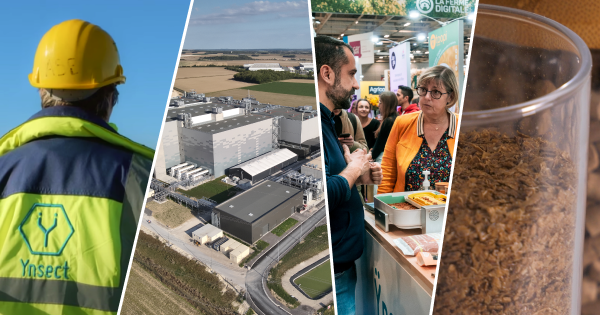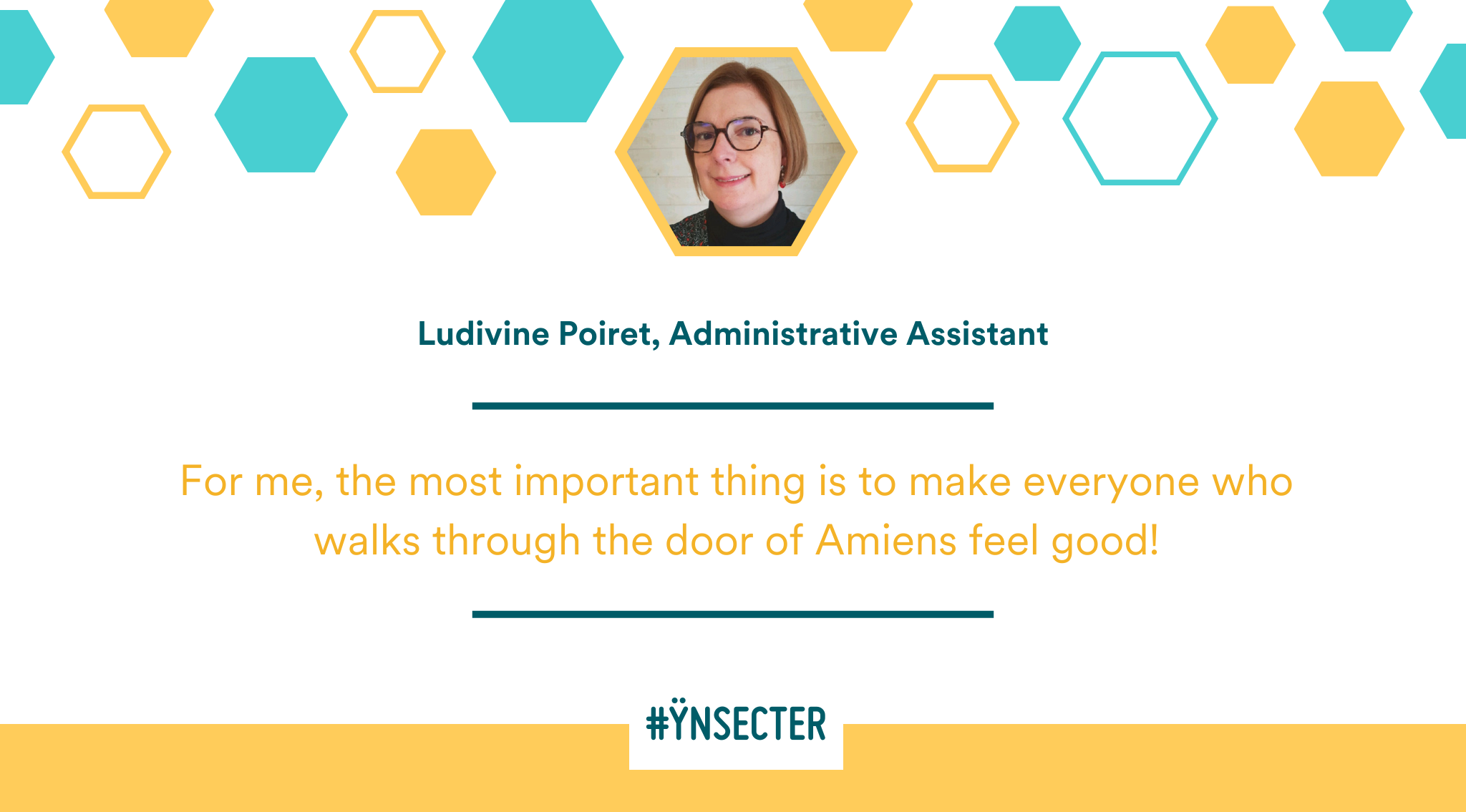An expert explains. By Anais MAURY
If someone had told you 10 years ago that insects would one day find their way onto your plate, would you have believed them? Over 2 billion people worldwide already eat insects on a daily basis. This is the case in places such as China, Thailand, Africa and South America. In France and Europe, where the market was virtually non-existent, insects are gradually gaining ground. Crickets, mealworms and ants are making their way onto the menus of sustainable restaurants and the recipes of the younger generation of chefs. However, for the majority of French people, insects are still considered culturally inedible, a source of disgust or fear. To overcome this, companies specializing in insect production are redoubling their efforts to inform the public about the nutritional and ecological benefits of insects. Changing public opinion is a major challenge, but the players involved are determined to rise to it. Ÿnsect, in particular, is helping to generalize the insect in society. Ÿnsect’s numerous campaigns to raise awareness, educational initiatives and tailored communications strategy have helped the insect to gradually gain acceptance in the minds of the French. In this article, I will explain how.
Building an expert network to change the law
In Europe, insects are being introduced into the diet more slowly than elsewhere in the world. This is to be expected, given that insects disappeared from our diet several centuries ago. However, in Antiquity, Romans and Greeks ate cicadas, grasshoppers and bees, which were considered exceptional delicacies. In the Middle Ages, insects were also eaten at feasts, notably the Molitor mealworm. Today, this lack of understanding of insects as food represents a real stumbling block for many Europeans. Beyond this cultural difference, however, it is European regulations that are above all holding back insect consumption, despite their nutritional quality and the low environmental impact of insect farming, which has been regularly highlighted by scientific studies. More conservatively, the first insect-based ingredients were not authorized in the European Union until the end of 2021.
Since its creation twelve years ago, Ÿnsect has been battling to change the legislation surrounding insect-based products. In 2011, when the 4 co-founders launched the company with the crazy challenge of breeding and transforming insects into ingredients for animal, plant and human nutrition, the regulations were muddled. They only authorized the ingredient production for pets. Firmly resolved to uphold insect rights, Ÿnsect helped create the IPIFF (International Platform of Insect for Food and Feed) association in 2012, in partnership with other players in the sector, to have its voice heard by European political decision-makers. Supported by its 76 members, IPIFF promotes the wider use of insects as a source of protein for food and feed, and is working to adapt legislation on insect-based ingredients. Thanks to IPIFF’s numerous actions to raise awareness with public players and ongoing dialogue with the European Commission and Parliament, the debate on legislation has been opened up, and the sector has successfully pushed for the inclusion of insect-based ingredients in the nutrition of farmed fish (2017), pigs and poultry (2021) and humans (gradually since 2021).
These advances are the result of joint efforts throughout the industry. Today, this authorization for marketing in human food offers new prospects for the insect sector, and paves the way for new markets. But the struggle is not over! Consumers still need to be convinced.
Raising awareness and educating consumers about insects
The second challenge we face is to get consumers to overcome the mental barrier represented by insect protein-based foods. In 2022, we carried out a survey with OnePoll on British, American, Dutch and French respondents, to test their level of acceptance of insects. The results
revealed that consumers are overwhelmingly open to their consumption. 96% of respondents who had already tasted them said they liked them or would repeat the experience, and an average of 75% would like to see them in more food products. The study reveals, however, that a certain segment of the population, notably older people and women, remains resistant to insect consumption.
To capture these reluctant hearts, Ÿnsect deployed its in-house forces to build a powerful communications and awareness-raising strategy designed to promote its own image and insect awareness among consumers. To this end, it mobilized all its teams around this common objective.
The first thing we did was to target the public in general. This is quite unusual for a B2B company, which must win over its business partners and customers first and foremost! But the insect is not a product like any other, and still has everything to prove. Furthermore, our position as market leader means that we have to educate and raise awareness of the exceptional properties of insects. How do we do this? Firstly, by building an editorial line that is both accessible and affordable for everyone, and by taking part in events open to everyone, such as Heritage Days, Floriade (in the Netherlands) and the International Agricultural Show (Salon de l’Agriculture), where for the past two years we have had a corporate booth and a children’s booth. Here, visitors have the opportunity to discover, touch and taste insect protein for the first time. This first approach is essential to dispel the fear still felt by many consumers. Children are a prime target for these major changes: they have little or no fear, are open-minded and curious, and are increasingly aware of environmental issues. We are confident that it is through them that insects will reach our plates. When seatbelts became mandatory in cars 30 years ago, the change was first implemented through an awareness operation in schools: “the first thing to do when you get home from school is to put on your seatbelt, and remind your parents that they have to do so too”. It’s more or less the same idea here.
At the same time, we are conducting a transparency policy and welcoming politicians, partners and journalists into our vertical farms to demystify what we do, and to show the benefits of our action for the health of women, men, animals and the planet.
Internally, initiatives have been launched to raise awareness and educate employees. We regularly publish expert articles to allow everyone to understand the different trades and expertise within the company, and to learn more about our practices and production methods.
At Ÿnsect, we want every employee to have a good knowledge of our mealworm, its life cycle, its nutrition, its living environment, its role in biodiversity… We have created Chrysalis, our trade school, with the aim of building a common culture around the insect. Any newcomer to Ÿnsect can benefit from this training program and learn a specific job chosen from among 30 on offer. The Chrysalis school enables us not only to build a common culture, but also to ensure that our employees develop their skills. To this end, we also provide a wide range of in-house resources to enable everyone to learn new things.
We are gradually achieving our goal, thanks to positive, transparent communication, numerous initiatives to raise awareness, training courses and presentations in schools and companies, and ongoing dialogue with the public, the press and public bodies. We’ve seen mindsets evolve over the last few years, and the insect is gradually being accessible. The great majority of consumers have not yet reached this point, partly because they cannot find enough products on the market, but the mental barrier is gradually dissolving. It takes several generations to change a food habit, but in such a globalized world, food habits are evolving faster and faster. 20 years ago, no one in the western world would have imagined eating raw fish, yet today sushi is one of the most widely consumed dishes in the world. The key lies in integrating our products into local food cultures. Patience and our joint efforts are paying off, which is not only reassuring for the future of the insect, but more broadly for the environment.





